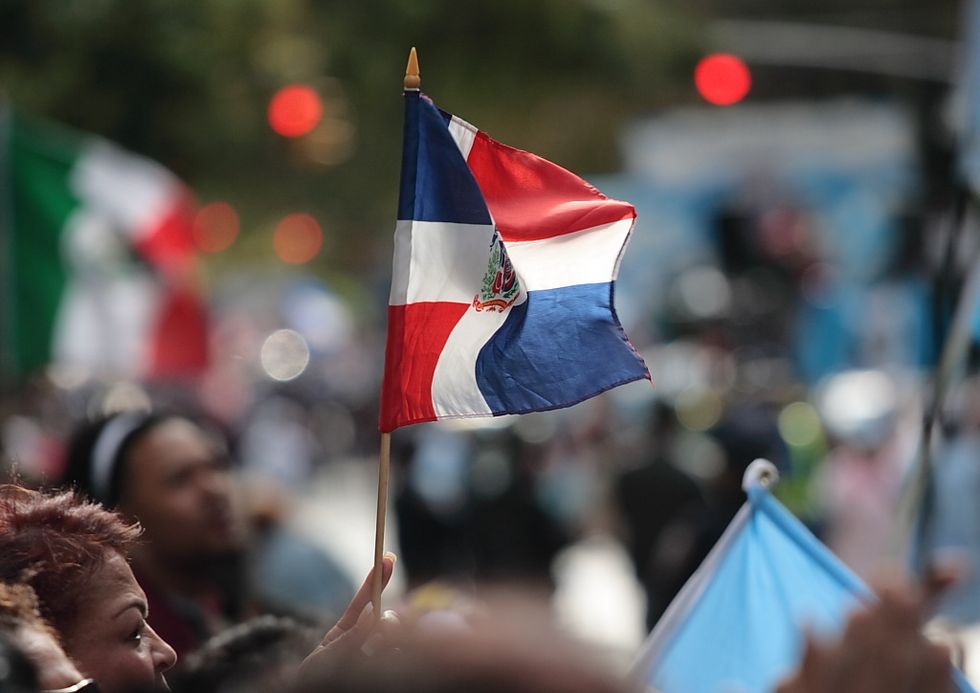The Hispanic and Latinx population in the United States is the nation's largest ethnic minority group. The number of individuals who fall into these categories in the nation has been steadily rising for decades and is not expected to decrease any time soon. So what does it mean to be Hispanic? How does intersectionality work within the social and biological framework of this population?
Race and ethnicity are separate categories within themselves. This isn't to say that each sphere is mutually exclusive, as there is often overlap between the two. Both race and ethnicity often have biological components, however the former points to a heavier reliance on genetic factors.
The American hemisphere has historically been a petri dish in which all races have learned to coexist and evolve. The origins of creole people in Central and South America can be traced back to European colonization and African exportation in the continent. The presence of and access to people of vast backgrounds in a geographic beaker has made the prolific racial mixing that spurred the Latinx community possible. Latinxs have become their own racial category in order to address the complexity of Latin America's ancestral background.
The term "Hispanic" points to the shared cultural characteristic of language. Being Hispanic simply means that you speak Spanish. Being Latinx suggests you have Central or South American heritage pointing to racial ambiguity.
Therefore, you can be both Latinx and Hispanic, like an ethnically Mexican person who is a native Spanish speaker. You can also be Latinx BUT NOT Hispanic, as is the case for Brazilians who solely speak Portuguese. Inversely, you can be non-Latinx and Hispanic, like people who are from Spain and speak Spanish but have no ties to Central and South America.
The pressure of being labeled within such a diverse community emphasizes the importance of having a personal sense of self. Breaking down barriers of historically rigid categories has given rise to a more intersectional way of thinking about identity. The term Latinx has been a fairly recent development to signal a more inclusive attitude towards gender and sex. Considering that Spanish is a romance language, it is also very gendered. An -o suffix points to a masculine essence, while -a refers to feminine connotations. "Latino" is becoming an outdated phrase within the intellectual sphere due to its patriarchal connotations.
In addition to self-identification, Latinxs face the challenge of positioning themselves through the eyes of others. Immigration being a hot button topic in the United States adds an extra level of classification. Nationality, in the legal sense, further divides the community into subdivisions. Each country in Latin America has branched out from one another by cultivating and developing traditions and characteristics specific to their history. An Argentinian can tell the difference between a Peruvian versus a Puertorican versus a Colombian. Of course, the nuances in regional culture typically aren't perceived by outsiders, making it easy to group all Latinxs into the same category.
As Latinx Americans grow in numbers, there is a rising stigma against people of color who reside in the United States. It's often easy for individuals who consider themselves "all American" to write off the "American" part of Latinx American identity based on physical features or differences in background. However, people who were born in the U.S. are fundamentally and explicitly citizens, regardless of familial background. While American citizenship is often portrayed as the most desirable nationality in the country, foreigners can earn these rights and assimilate into American culture while still preserving their heritage.
Regardless of whether the United States is a melting pot or a salad bowl, the fact of the matter is that it is a land of multiplicity, dimension, and complexity. Hispanic heritage month highlights the sentiment that should persist every day of the year, being that we should celebrate everyone's unique stories and attributes that contribute to the richness of American society.



















